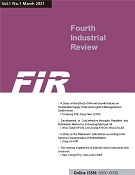 E-ISSN : 2765-7213
E-ISSN : 2765-7213
Vol.3 No.1
Abstract
Purpose - In Korea, where 64% of the land is forested, mountaineering is a leisure activity enjoyed by the majority of the people. As new technologies named the 4th industrial revolution spread more after the Covid-19 pandemic, we propose a human and technology convergence curriculum for mountaineering and trekking education to enjoy safety in the field of mountaineering and trekking using cutting-edge technology. Research design, data, and methodology - After examining the current state of the mountaineering industry and preceding studies on mountaineering and camping, and learning about BAC the 100 famous mountains, mountaineering gamification, and Gamification We designed an AI convergence curriculum using. Result - Understanding the topography and characteristics of mountains in Korea, acquiring mountaineering information through AI convergence, selecting mountaineering equipment suitable for the season, terrain, and weather, setting educational goals to safely climb, and deriving term project results. A total of 15 A curricula for teaching was proposed. Conclusion - Artificial intelligence technology is applied to the field of mountaineering and trekking and used as a tool, and it is expected that the base of mountaineering will be expanded through safe, efficient, fun, and sustainable education. Through this study, it is expected that the AI convergence education curriculum for mountaineering and trekking will be developed and advanced through several studies.
Abstract
Purpose - By designing a PEF(Personalized Education Feedback) system for real-time prediction of learning achievement and motivation through real-time EEG analysis of learners, this system provides some modules of a personalized adaptive learning system. By applying these modules to e-learning and offline learning, they motivate learners and improve the quality of learning progress and effective learning outcomes can be achieved for immersive self-directed learning Research design, data, and methodology - EEG data were collected simultaneously as the English test was given to the experimenters, and the correlation between the correct answer result and the EEG data was learned with a machine learning algorithm and the predictive model was evaluated.. Result - In model performance evaluation, both artificial neural networks(ANNs) and support vector machines(SVMs) showed high accuracy of more than 91%. Conclusion - This research provides some modules of personalized adaptive learning systems that can more efficiently complete by designing a PEF system for real-time learning achievement prediction and learning motivation through an adaptive learning system based on real-time EEG analysis of learners. The implication of this initial research is to verify hypothetical situations for the development of an adaptive learning system through EEG analysis-based learning achievement prediction.
Abstract
Purpose - This study focused on the development of a Korean language curriculum to solve the problem of Korean literacy among students from multicultural families. Research design, data, and methodology - A case study was conducted on Sim(2018)'s learner-centered learning model to develop an educational plan including AI technology, which will help students from multicultural families to effectively improve their communication and learning skills by improving their reading, writing, and speaking of Korean. Result - Total of six educational plans using AI technology (Microsoft PowerPoint's drawing function, AutoDraw, and Google's Four-cut cartoons) were developed. Conclusion - The curriculum using AI is expected to greatly contribute to the recovery of language learning ability and confidence in studies necessary to improve learners' language education.













